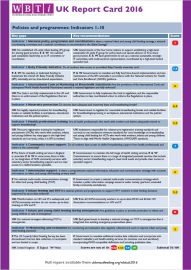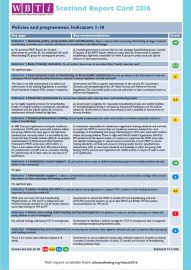The World Breastfeeding Trends UK Report 2016 is available free online.
There are two parts: Part 1 has the main findings, Part 2 contains additional material.


WBTi UK – Report Cards
Report cards summarising the WBTi assessment of programmes and practices are available for the UK, England, Northern Ireland, Scotland and Wales.





It is important to realise that many healthcare professionals HAVE been trained in Breastfeeding Management and just because they cannot afford the cost of IBCLC, their training, experience and face to face contact is just as valuable as those holding a certificate. Also, volunteers may be volunteering as they lack the time to fill a full time psid role..it does not mean they lack quality training.
LikeLike
I would disagree. Training as a midwife and undertaking further training as part of a specialist role to support infant feeding and train other staff in infant feeding management combined with over a decade of experience was valuable but there is no comparison to what I used to know then and what I now know as an IBCLC.
Whilst not everyone will need an IBCLC, I believe the NHS should employ at least 1 IBCLC at every hospital with 3,000 deliveries or more and that they should be involved in basic teaching and also in support of vulnerable premature infants with complex needs. They should be on hand for midwives and paediatric doctors to liaise with and refer to.
LikeLike
Yes indeed! Our review (see Indicator 5) looks at the universal high level standards for training in infant feeding for various health professions who work with mothers and babies, in comparison to an Educational Checklist from WHO.
There are indeed many individual health professionals who have training far beyond these minimum standards.
And in Indicator 6 there is a closer look at breastfeeding support in the community, including the important role of the voluntary organisations.
Have a look in both Part 1 (the main report) and Part 2 (supplementary material, which has a great deal of further information about specific health profession training standards in Indicator 5 and about the work of the voluntary organisations in Indicator 6).
LikeLike